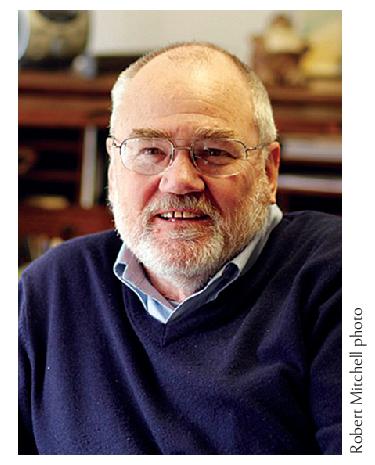A sad day
We all dodged a bullet Saturday night.
Yes, we watched in horror as the leading Republican presidential candidate escaped an assassination attempt.
Yes, even the most diehard Democrats joined their Republican rivals in condemning the act.
Yes, even the most partisan Democrats joined the other side to hit their knees in thanks for his survival.
This is America. This should not happen here. Assassinations are the calling card of political players in faraway lands, nations with names, cities and leaders that most of us, including me, cannot spell and darn sure can’t pronounce.
Yet, at a little rural county fairground not far from Pittsburgh, Pennsylvania, a 20-year-old guy somehow eluded a large contingent of Secret Service agents, state troopers, city police and county sheriffs.
Then, just 150 yards from the stage, he climbed a roof and looked down the barrel of one of the most popular rifles in the nation. And he pulled the trigger, sending a bullet out the muzzle at about 3,200 feet per second at the presumptive GOP presidential candidate.
For some reason, the slug just clipped the candidate’s right ear. Had the shot been a fraction of an inch or so to the right, we would be writing a different story. Our TV screens would have shown us the death of one of the favored politicians of our modern era. It would have been a bloody and terrible sight.
For me, and other political junkies, it is hard to process the sight of blood streaming from the candidate’s right ear as the Secret Service agents piled onto his body to shield him from another bullet. I noted that several of the agents shielding him were women.
Thank heaven he survived.
But this event was not the first time a major American presidential figure was the target of an assassin’s bullet. Four were slain. Abraham Lincoln (1865), James A. Garfield (1881), William McKinley (1901), and John F. Kennedy (1963).
Andrew Jackson (1835) escaped a bullet when the guy’s gun misfired. Teddy Roosevelt was shot in the chest while campaigning in 1912 and survived when the slug was slowed by the 50-page speech he had rolled up in his suit coat pocket. His cousin, Franklin D. Roosevelt, was giving a speech in Miami (1933) when the bullet of an assassin missed him, killing the mayor of Chicago who was sitting nearby.
President Gerald Ford escaped two assassination attempts in September 1975. Ronald Reagan was not so lucky when he was shot in 1981, but thankfully, he survived.
In 1950, Puerto Rican independence advocates tried to get into the Blair House to shoot President Harry S. Truman but were stopped by police at the front door. Four years later, a quartet of men with similar political aims fired 30 shots into the House chamber, nearly killing five legislators.
And, in 1968, in an intense political climate similar to today, Democrat candidate Robert F. Kennedy was gunned down in a Los Angeles hotel kitchen, while civil rights leader Martin Luther King was assassinated at a Memphis motel by a sniper. Four years later, in 1972, former Alabama Governor George Wallace was shot during a campaign rally, but survived.
We all remember how Congressman Steve Scalise almost died when he was shot in 2017 while practicing for a political ball game and, Rep. Gabby Giffords (R-Arizona) was shot at a rally and, not long ago, an attacker bludgeoned the husband of former Speaker Nancy Pelosi in his own home.
The good news, besides the candidate’s survival, was the other side immediately reached out to condemn the shooting and halted their TV political ad campaign. There is a time and a place for political attack ads and this is not one of those times.
Still, no one expects the two campaigns to gather, hold hands, and sing Kumbaya.
A hundred years ago, writer Finley Peter Dunne quoted his fictional Mr. Dooley as saying, “Sure, politics ain’t bean-bag. Tis a man’s game, and women, children ... and prohibitionists would do well to keep out off it.”
Yes, Mr.Dooley, politics ain’t bean bag or, using today’s language, politics is not pickleball.
In a recent essay in the Washington Post, Mitch Daniels, a former Reagan cabinet official, two-time GOP Indiana governor, and Purdue University president, said political campaigns don’t have to be “dispiriting, narrowcasting mudfests.” They don’t have to be ideas fashioned to stroke the erogenous zones of a riled-up minority of left or right.
He said campaigns can be the best vehicles for floating constructive ideas to the public, have a higher likelihood of enactment after the election, and evoke our common interest instead of our differences and antagonism.
But then, he added: “But such campaigns rarely make sense these days.”
To Mitch Daniels’ thoughts, I would add a quote from a Robert F. Kennedy speech (using a George Bernard Shaw quote) – “I dream of things that never were, and ask why not.”
Me too.
























